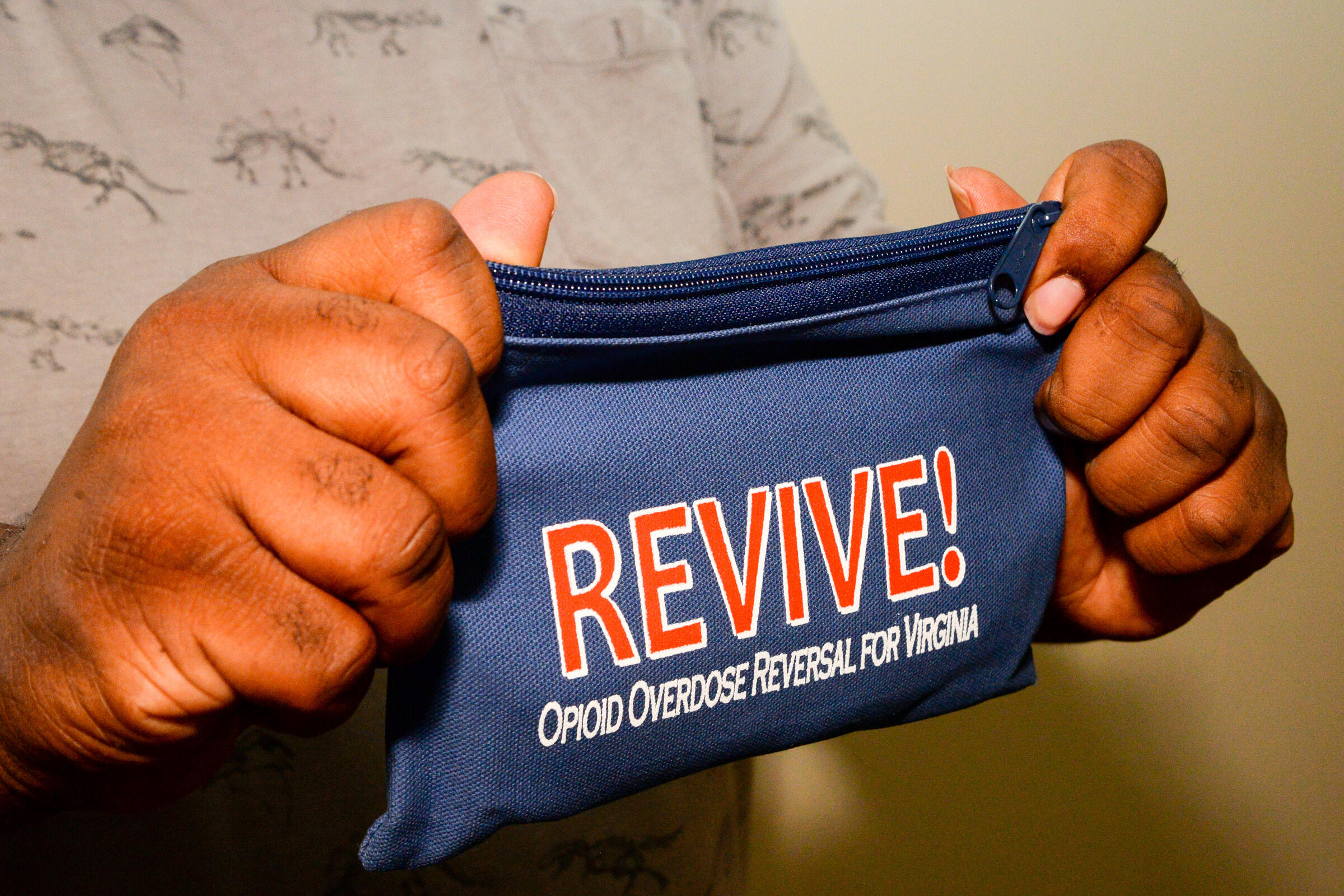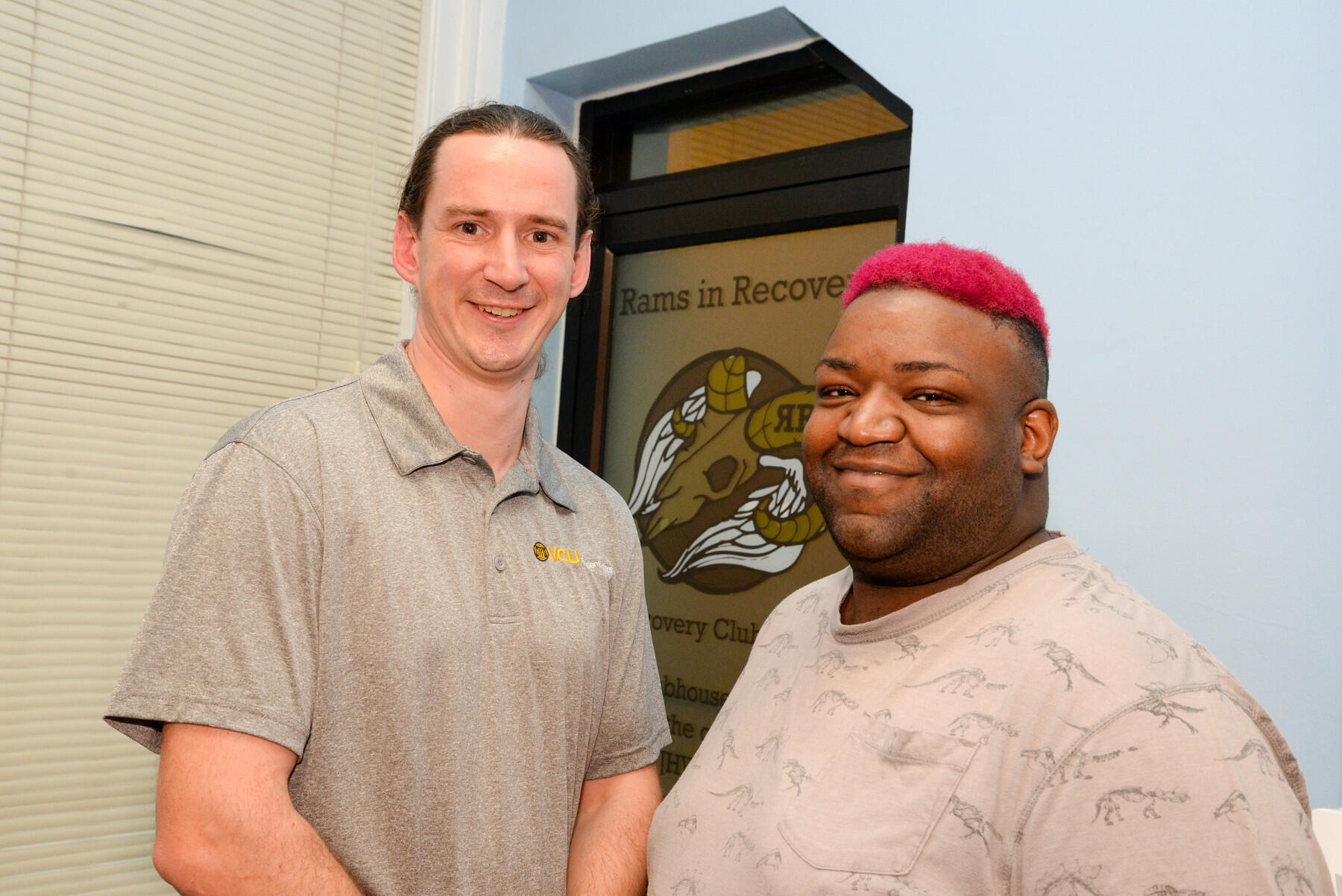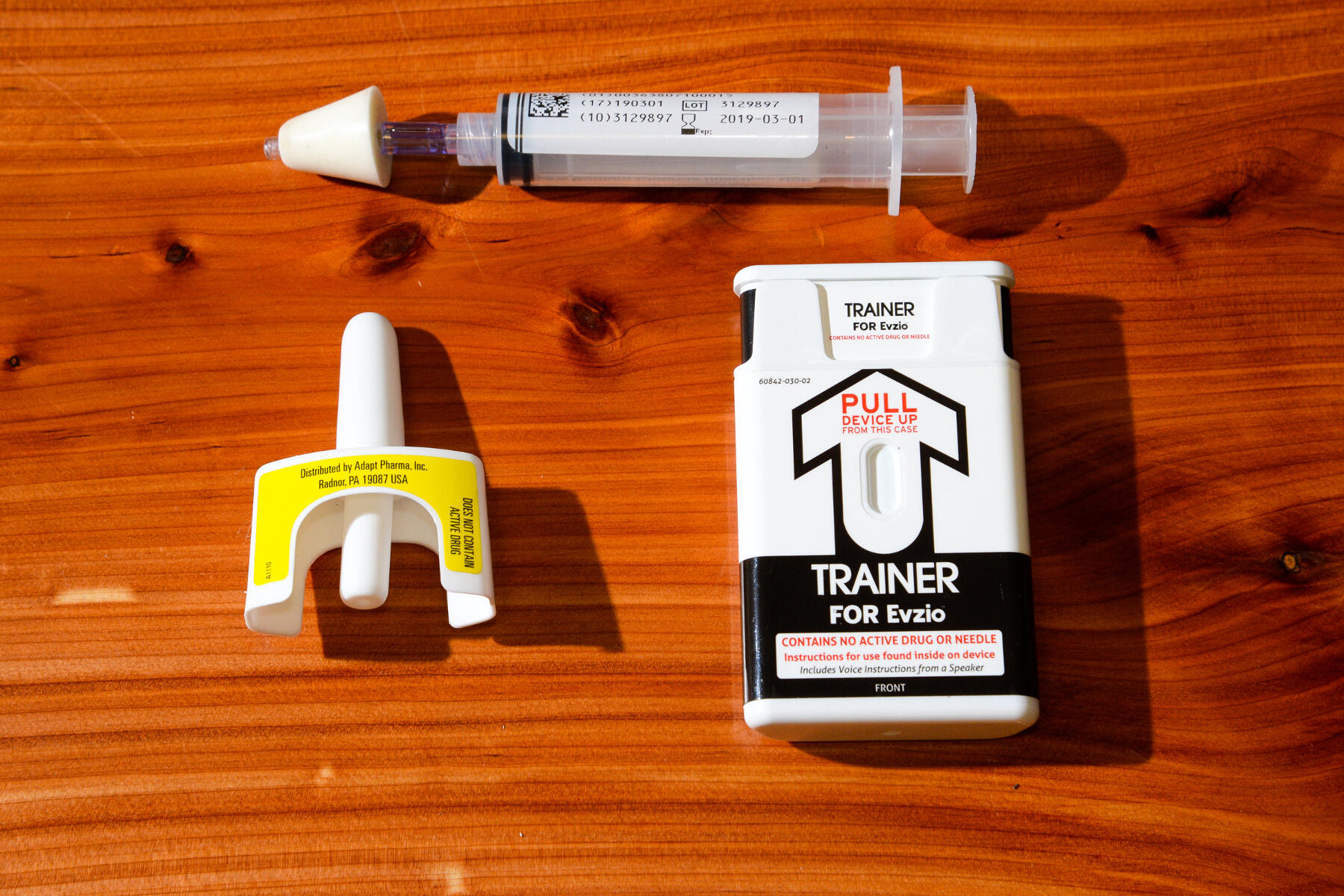
Oct. 9, 2018
Opioid overdose medication provides lifesaving opportunity
Share this story
In a quiet conference room in the bustling University Student Commons, a group of students and staff is learning about second chances. Specifically, how they can potentially save the life of someone overdosing on opioids.
This group joins other VCU community members who have learned how to deploy naloxone — also known by the brand name Narcan — during REVIVE! training led by Rams in Recovery, VCU’s collegiate recovery organization.
“I know we have trained over 350 people in the year that I’ve been here. It feels pretty good,” said Shawn Hammonds, an AmeriCorps member working with Rams in Recovery.
Tom Bannard, program coordinator for Rams in Recovery, said the training provides “a practical tool for responding.”
“We are hearing a lot about the opiate epidemic, but I think people don't know what they can do. Naloxone training gives people an entry point to being part of the solution,” he said.

The training also covers how to tell the difference between someone who is high and someone who is overdosing, the wide variety of opioids, rescue breathing and other topics.
Federal and state officials have declared public health emergencies as a result of the opioid crisis. In 2017, 1,227 Virginians died from opioid overdoses, Gov. Ralph Northam, M.D., told VCU School of Medicine students in August.
Opioids depress a person’s central nervous system and breathing, which can lead to death. Naloxone is an opioid antagonist that binds to receptors in the brain. It can quickly restore regular respiration, buying time for further treatment.
According to the National Institute on Drug Abuse, bystanders used naloxone to reverse at least 26,500 overdoses between 1996 and 2014. The treatment does not last as long as opioids, so someone can slip back into overdose if they do not promptly receive medical attention.
Myths abound about ways to reverse an opioid overdose, Hammonds said, and they have two things in common: Remedies like cold baths or water injections don’t work, and they waste precious time when professional medical help is needed.
In Virginia, a standing order allows those with REVIVE! training to receive naloxone without a prescription. Local health departments are able to provide it at no cost.
|
Rams in Recovery training opportunities REVIVE! naloxone training Thursday, Oct. 18, 6:30 p.m. Friday, Nov. 2, 3:30 p.m. Recovery Ally training Thursday, Oct. 25, 1-4 p.m. |
The training prepared them to help others, training participants said.
“With so many people using opioids, I wanted to be ready for that,” said Katie Schifano, a recruitment specialist at VCU’s Institute for Drug and Alcohol Studies. “I saw a video recently where somebody overdosed on a bus. You just never know when something is going to be happening, so I wanted to have this to keep in my bag at all times.”
Kailyn Williams, a junior in the psychology program with a concentration in addiction studies, has “that personal side” due to a family member’s struggles with addiction. She plans to become an obstetrician-gynecologist focused on women with addiction. In the meantime, she feels ready to take charge of a situation.
“I just feel like it’s good to know this, just in case. A lot of the time, people are around and don’t know what to do,” Williams said.
With hundreds now armed with deeper knowledge of opioids, stigma about people in recovery is eroding.
“A lot of what these trainings are doing is opening up the conversations about people in recovery and what recovery offers,” Hammonds said. When students who are in recovery lead programs, “people get to see that they are just like them. There are students on campus who are just like them that struggle with recovery, addiction and things like that.”
Schifano agreed.
“The more people who are trained, the more people who are aware this is an issue, then maybe people will be more likely to seek care because they’re not afraid of having that social stigma attached to it,” she said.

During Hammonds’ time with Rams in Recovery, he has led training, conducted peer mentorship, helped at VCU Health’s MOTIVATE Clinic and other tasks. He recently extended his AmeriCorps service for another year.
“Being a person who is in recovery myself, I can tell people that there is more to life than active addiction. In recovery, you can do a lot more in life,” Hammonds said.
Bannard said Hammonds is “a passionate advocate” who connects with others.
“When you have someone in recovery leading the session, it gives people exposure to recovery and hope, and it breaks down some of the stigma that prevents people from asking for help,” he said.
Subscribe to VCU News
Subscribe to VCU News at newsletter.vcu.edu and receive a selection of stories, videos, photos, news clips and event listings in your inbox.










